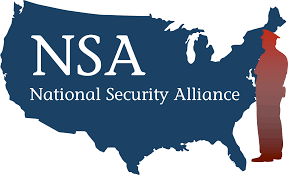
The Business Case for Better-Trained Guards
The Business Case for Better-Trained Guards
Randi Sherman
4-Minute Read
Security is a top concern for businesses in just about every industry. From industrial complexes and office buildings to shopping malls, condos, events, celebrities, and executives, protecting property and people is essential, and well-trained guards are in high demand.
However, despite a consistent and pressing need for guards, security guard companies can’t just hire anybody. Security guards deal with highly charged people and situations daily, and proper training is critical to mitigate risk and reduce liability for the company.
Security guard companies that prioritize training are trusted service providers, setting themselves apart from their peers in a world that values personal safety and security above all.
Today’s article will outline the connection between well-trained guards and security business success and how a strong focus on guard training builds brand equity and public trust and helps to stabilize your workforce for long-term success.
The Link Between Well-Trained Guards and Higher Client Satisfaction
Companies hire security guards to protect people, property, and the public. On-duty guards provide a visible presence that deters crime and disruption, reducing the frequency of potentially harmful or injurious incidents and establishing a safer and more welcoming environment.
A guard at the front desk of a hotel or residence provides peace of mind for people coming and going. They keep the peace at large gatherings, keeping a sharp eye out for potentially disruptive behavior, and are always prepared to intervene in case of conflict.
The unpredictability of people and scenarios can be an issue if the guard does not know how to de-escalate a situation. If they respond aggressively, things can get heated quickly, resulting in unnecessary harm and potentially putting the company and guard at risk of legal action.
Trained guards exude professionalism and competence. People are more apt to respond rationally when the person in authority approaches the situation with calm control, reducing the severity and frequency of incidents and helping to build trust and satisfaction, not just for the guard personally but also for their employer.
Guard training includes foundations in conflict de-escalation and legal liability but also underscores the value of good communication and customer service.
Upon completing their training, a guard will be able to assess and respond to any situation and connect confidently with various stakeholders, including law enforcement, emergency response personnel, the public, property owners, and would-be perpetrators.
Clients that hire guards value peaceful resolution. Violent confrontations or frequent conflict must be avoided if possible, and guard companies with a strong focus on training will always have fewer incidents and higher client satisfaction.
How Training Mitigates Risks and Reduces Liability for Clients
It’s an unfortunate consequence of the high demand for guards that some companies may hire untrained personnel. While they may think that hiring an inexperienced, part-time guard for an overnight shift might be okay because they won’t likely interact with many people, a single incident can derail all good intentions.
For example, an inexperienced guard may not recognize dangerous or suspicious behavior, resulting in damage, loss, or injury.
Someone in the throes of a mental health crisis may be mistaken for a dangerous criminal and treated aggressively when a different tactic should have been applied.
Interactions may become heated between two parties, and an untrained guard may react or say something that worsens the situation.
Bias against certain individuals may also become a factor if inexperienced guards allow their personal feelings or political opinions to dictate how they speak to someone.
Any of the above scenarios can inadvertently increase legal and operational risks for businesses and the guard company. Should a lawsuit be filed, it’s not uncommon for the guard, the guard company, and the property owner to be named in the suit.
Training in areas like situational awareness, legal compliance, and emergency response helps to minimize incidents and mitigate the potential for physical and emotional harm and legal and financial repercussions.
Dollarama Incident Highlights the Need for Adequate Training
In a recent example, a guard in Toronto, Canada, was charged with assault resulting from a confrontation at a Dollarama discount store. The guard had asked the man to leave his bag outside as he had spilled coffee in it, but when he refused, a physical altercation ensued.
Video taken by another customer showed the guard repeatedly punching the man after restraining him with his hands around his neck. The man spat on the guard, which escalated the assault, resulting in the man falling to the ground, where he was repeatedly punched and kicked by the guard.
Dollarama (the client), the guard company, and the guard are now facing criminal charges and a civil liability suit for injury. The incident has brought much scrutiny to guard training procedures and what skills would have been necessary to prevent the attack from escalating.
The resulting criminal and civil liability, reputational damage to the employer, financial cost, and regulatory scrutiny may understandably lead to a negative view of the company. While this may well be an isolated incident, the actions of a single guard have the power to define their public image and could impact the company’s solvency going forward.
Clients Prefer Guard Services with a Proven Track Record
Nobody wants to be on the receiving end of a lawsuit or criminal action. Companies that require security will overwhelmingly choose their providers based on reputation and safety record.
Guard companies with a reputation for poor compliance or that have faced significant legal action will be hard-pressed to compete and will almost certainly be challenged to find competent guards who will stay with the company.
On the latter point, a documented commitment to training is a massive differentiator for guards looking to build a career in security. Potential employees want to know their employers are stable and provide a safe, supportive working environment that values hard work and dedication.
For the employer, training programs support recruitment and retention as they provide viable career paths and demonstrate a commitment to helping people advance and improve their long-term outlook in the industry.
Certain industries and scenarios have a particular preference for hiring providers that prioritize training. Corporate offices, event security, luxury residential buildings, and high-compliance sectors are just a few examples. For example, it would be hard to imagine an untrained guard assigned to an institutional pharmacy, a government building, or a high-end hotel that frequently hosts celebrities.
If we can conclude that well-trained guards lead to more satisfied clients, risk and liability reduction, and increased demand for services, there are literally no downsides.
Prioritizing training will always be a strategic investment for business growth in security, supporting your ability to compete at the industry’s highest levels.
Explore our programs today or speak to us about how we can help you elevate your company through a commitment to guard training.






